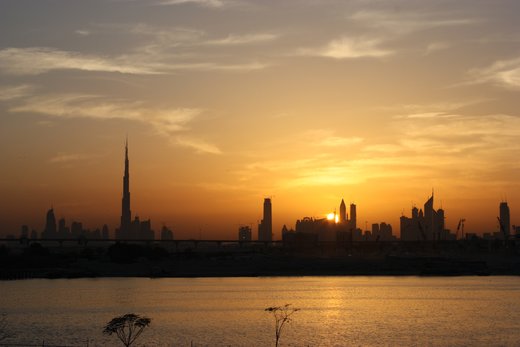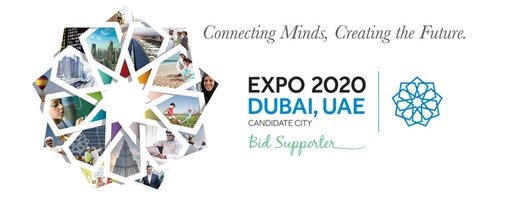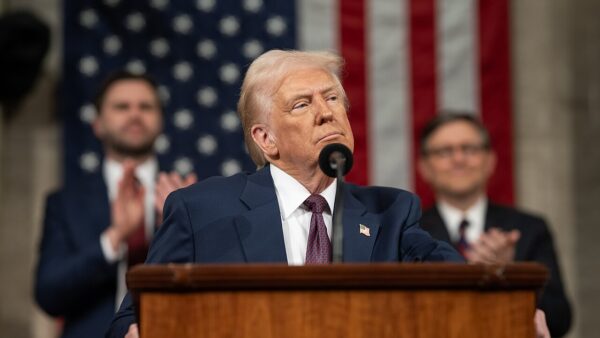30 April 2013
The organisers of Dubai’s Expo 2020 have revealed details of their plans and say all construction and infrastructure work will be done in 2019 to allow a full year for commissioning.
The information was given during a presentation by the emirate’s Expo 2020 Preparatory Committee to the Bureau of International Expositions (BIE), the governing body of the World Expo, in Paris this week.
Helal Saeed Almarri, director general of Dubai’s Department of Tourism and Commerce Marketing, told the BIE that the “sheer level of detail” already developed for the masterplan will ensure a “timely and holistic implementation”.
If built as planned, the centre will have a construction cost of between $2bn and $4bn, making it the largest ever for a World’s Fair.
The main site will cover 438ha near the Dubai World Trade Centre and will be divided into residential, hospitality and logistics zones. The residential part will include an Olympic Games-style “village” for the staff who will be working at about 250 national pavilions.
Work on building the Expo infrastructure will begin next year after the detailed masterplan is approved by the BIE.
The village is set for completion in 2018, after which construction of the pavilions will begin. These will be located in a 150ha gated Expo site that will also be divided into three zones based on the themes of mobility, sustainability and opportunity.

Dubai, shown here, fought off challenged from Russia, Brazil and Turkey to win the 2020 Expo (Lehtm25/Wikimedia Commons)
The UAE Pavilion will feature a “Welcome” and an “Innovation” pavilion surrounding the central plaza; three souks, one in each of the theme zones, will showcase the pavilions of smaller countries. The larger countries’ pavilions will be on the circumference of the site. The three zones will also have its own entertainment venue and a specialised theme pavilion.
The sustainability theme will be exemplified by generating half of the site’s energy needs from renewable sources, with the emphasis placed on solar energy. There will also be a target of cutting water consumption by 25%, and a waste recycling strategy will be put into place during the construction phase.
A $1.4bn extension to the Dubai Metro’s Red Line and an Expo station will be built to encourage visitors to use public transport, and a zero-emission “ExpoRider” bus service will transport visitors to the Trade Centre site from pick-up points in hotels throughout the UAE.
At these pick-up points, passengers will undergo ticket checks and security screening, eliminating the need for further checking when they reach the Expo Site.
What’s an Expo for?
Countries compete to host Expos because of the national marketing opportunity and as a way of luring tourists over the six-month period that Expos are allowed to run.
The organisers of Dubai 2020 say the event, running from 20 October 2020 to 10 April 2021, will generate an extra $25bn to $40bn in business between now and closing time, a major boost to Dubai’s GDP which presently stands at about $85bn a year.

Logo and slogan for Dubai’s Expo 2020
Most of that impact will be caused by a $7bn Expo-related investment programme and a predicted daily footfall of between 153,000 and 300,000, with an overall increase in tourism of between 25 million and 100 million visitors.
The business plan for the Expo says 275,000 jobs will be created across the region in the next six years as a result of this demand stimulation. The sectors of tourism, aviation, construction, property, engineering, infrastructure, logistics, transportation, hospitality and retail are all expected to benefit.
The construction sector can expect to gain about 90,000 jobs as a result of the Expo, says Cynthia Corby, an audit partner specialising in construction at Deloitte Middle East.
She warned that this could strain the emirate’s labour market: “The demand for skills and resources will of course increase and we would hope that a well-planned and phased development strategy will prevent the price for these resources and for talent from becoming disproportionately expensive.”
In practice, the economic benefits of an expo are essentially guesswork. Austyn Allison, an analyst at Middle Eastern economic consultant MEED, told GCR that, “inevitably, a lot of the figures being produced are just hype”.
According to BIE, the Shanghai 2010 expo drew in about 73 million extra visitors and was successful in showcasing China’s immense modernisation project. On the other hand, Hanover’s World’s Fair in 2000 was poorly attended and made a net loss of about $1bn.
In November last year, Dubai beat rival bids from Yekaterinburg in Russia, Izmir in Turkey and São Paulo in Brazil to win the right to hold the Expo – the first time that a World’s Fair has been awarded to a Middle Eastern country.
The victory was marked by fireworks, a national holiday, and the decision to name a proposed new tower, set to be the world’s tallest commercial building, the “Burj 2020”.










